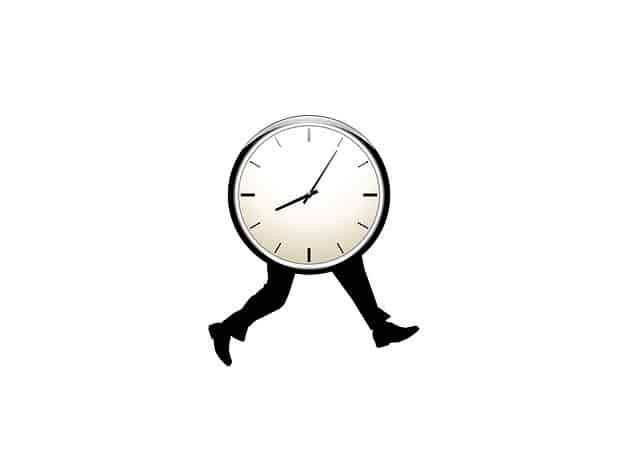Category Archives for "FAQ"

You just experienced a crash. Your heart is racing. People are staring. Everyone is asking you questions. You check on your children in the backseat. The officer arrives, lights flashing.
The officer starts asking questions. Your kids are crying in the backseat. You are late to the next appointment. Traffic is backing up. Your spouse is on the phone asking questions. The situation is out of control.
Your adrenal glands react and pour adrenaline into your body. Your heart races. Your breathing increases. Your body prepares for a fight or a flight, masking pain.
The officer asks if you are hurt. You don’t feel any pain, or at least you don’t think you do. You tell the officer, “No.”
In South Carolina, over 50% of people who have been in a car accident tell the officer they are not hurt. The truth is many of those people will begin to hurt and realize the extent of the injury well after leaving the collision scene.
If you are hurt, the best thing to do is get to a medical professional as soon as possible. Do not delay going to the doctor because you told the officer you were not hurt. Adrenaline and shock mask many injuries at the collision scene.
While the insurance company may fight you, medical professionals know that pain from injuries after a car accident may take time to develop. The wrongdoer (and the wrongdoer’s insurance company) are not off the hook because you told the officer you were not hurt. The law requires wrongdoers and their insurance company to take full responsibility for your injuries.
If you have any questions about your car accident, please request my free resources or contact me for a free consultation.
Download your free copy of my Car Accident Claims Guide in Plain English by clicking below.

A statute of limitations is the maximum amount of time you have to file a lawsuit. If you do not file a lawsuit before the time limit, then your lawsuit will likely be thrown out. This will destroy your case.
The time limit starts when the injury occurs under most circumstances. For personal injury cases, like automobile accidents and slip/trip and fall injuries, there are two potential time limits.
The three year statute of limitations is the general time limit for most personal injury cases, excluding medical malpractice cases. For example, you generally have three years to file a lawsuit from the date of a car accident.
Some personal injury cases have a two year statute of limitations if the injury was caused by a government department or person working as a government employee (police officer, county employee, etc).
There are limited exceptions to the start date. One exception exists for minors—you have extra time. A second exception exists for exposure cases. For example, if you were exposed to asbestos and develop problems years later. If you believe an exception should apply to your case, you must talk to a lawyer right away.
Properly calculating the statute of limitations is crucial to your case. If you have any questions about what the statute of limitations is on your case, please call me for a consultation at 888-510-3959
Federal law requires medical providers to keep individuals’ health information private. Medical providers can only disclose your health information if you authorize the medical provider to release that information. The authorization is called a medical release and may be referred to as a HIPAA release.
HIPAA is the acronym for the federal law that includes the privacy rule. It stands for the Health Insurance Portability and Accountability Act. The portion of the law that deals with keep health information private is called the Privacy Rule.
When you make an injury claim to a wrongdoer’s insurance company, the insurance company will require documentation. Specifically, the insurance company will require your medical records and bills. Insurance companies offer to request your medical records and bills for you (isn’t that nice), but must have your authorization first. So, the insurance company sends you a medical release they want you to sign and send back to them.
Here, the devil is in the details (or fine print) of the medical release the insurance company will send you. Most people believe that the insurance company will only request their health records and bills that are related to the collision. No one wants random people combing through their medical history. However, insurance companies may not limit the medical release. Often, the insurance company will want you to sign a medical release that allows them to get your complete medical history, even records from five, ten, or even twenty years ago. Their medical release acts as a blank check into your health history.
The solution is gather your medical records yourself or through your lawyer. If you hire a lawyer, your law firm will request these medical records as a part of their representation. Sometimes, the insurance company will require additional medical records for three to five years before the collision. Our firm evaluates these requests for reasonableness and then requests these records for our clients.
The bottom line is to avoid signing a blank check authorization for the insurance company to comb through your entire medical history. If you have any questions regarding medical releases, please call me.
If you have been hurt in a car accident:
Insurance Adjuster – this is the person from the insurance company who determines how much money to pay you. You may have multiple insurance adjusters on your car accident case.
Property Damage Adjuster – this is the person from the insurance company who reviews the damage to your car and determines how much money it will take to fix it or how much your car is worth if your car is totaled. You may have a property damage adjuster from your car insurance company and the insurance company from the person who hit you.
Bodily Injury Adjuster – this is the person who will evaluate your physical and mental injuries and determine how much money the insurance company is willing to pay. Some adjusters use complex computer based systems to make this determination. Others use their experience and knowledge.
Investigating Officer – this is the law enforcement officer who investigated your collision and completed a report. Often, this officer will make a determination of who was at fault. Most people will never have additional interaction with the investigating officer. However, the investigating officer may be a witness if your car accident case goes to trial.
Subrogation Representative – this is the person from your health insurance company who determines how much money, if any, your health insurance company requires you to pay back after your settlement. Most health insurance companies will require that you pay them back if you recover money based medical treatment the health insurance company paid for.
Medpay / Personal Injury Protection Adjuster – this is the person that will determine how much money to to pay you based on your medical bills. This person will represent either your car insurance company or the car insurance company for the vehicle you were in during the crash.
If you have been hurt in a car accident:

Some cases settle within a few months. Other cases take years to resolve. Most cases settle in between. Its impossible to say with any certainty because there are factors outside your control. For example, some injures take longer to heal, other might not heal. Your medical treatment may last two months or two years.
Additionally, some insurance companies take longer to respond than others. Conflicting witnesses statements on who was at fault may make additional investigation necessary. Unreasonable offers from the insurance company may necessitate filing a lawsuit.
The key to a speedy settlement is having a system that tracks treatment status, medical records, and responses to information requests from the insurance companies. To speed up your settlement, make sure to organize your medical bills, review your insurance paperwork, and document your recovery.
If you have been hurt in a car accident:

South Carolina law tells us that negligence is the “absence of due care.” I know that you are probably thinking that is not too helpful of a definition. Perhaps think of it this way. Consider negligence as carelessness.
The law offers a test to see whether a person was negligent or careless. The test asks you to consider what would a reasonable person do under the same or similar circumstances. Since a reasonable person would not expose someone else to unnecessary danger, the reasonable person would choose the safest way to do something.
Even if the next safest choice would accomplish the same thing as the safest choice, the next safest choice is still the negligent choice if it exposes someone else to more danger. For example, consider two ways to drive down the road. The first, driving will total concentration on the road. The second, driving while reading a cell phone. Both ways of driving accomplish the same thing, driving. However, the second is negligent because it exposes someone else to more danger. Distracted driving increases the risks of causing a crash.
If you have been hurt in a car accident:

South Carolina law tells us that punitive damages are designed to punish a wrongdoer because of the seriousness of the wrongdoer’s conduct. Examples of conduct that are more serious include driving while intoxicated or texting while driving. Compare those examples with driving too fast in the rain, which would most likely not qualify for punitive damages.
South Carolina law requires wrongdoer’s to put the injured person, as good as money can, in the position the person was before the injury. Additionally, if the wrongdoer’s conduct is especially bad, punitive damages seek to punish the wrongdoer and vindicate the injured person’s rights.
If you have been hurt in a car accident:

You must document your damages in order to successfully resolve your car accident case. Here are three reasons:
If you have been hurt in a car accident:

Damages in car accident cases focus on actual damages. Actual damage compensate an injured person for all the harms and losses the injury caused. Here are twenty types of actual damges that South Carolina Law recognizes:
If you have been hurt in a car accident:

The law in South Carolina mandates the wrongdoer to pay enough money to cover all the harms and losses of the injured person. Think of it this of it this way. Before the accident, the injured person didn’t have:
When a driver breaks a safety rule and collides with another vehicle, the driver must pay for all the damage to the other car. Additionally, the driver must also pay for the injured person’s medical bills and enough money to make up for all the injured person’s harms and losses.
There is no calculator that will help you. Each case is completely different.
If you have been hurt in a car accident: